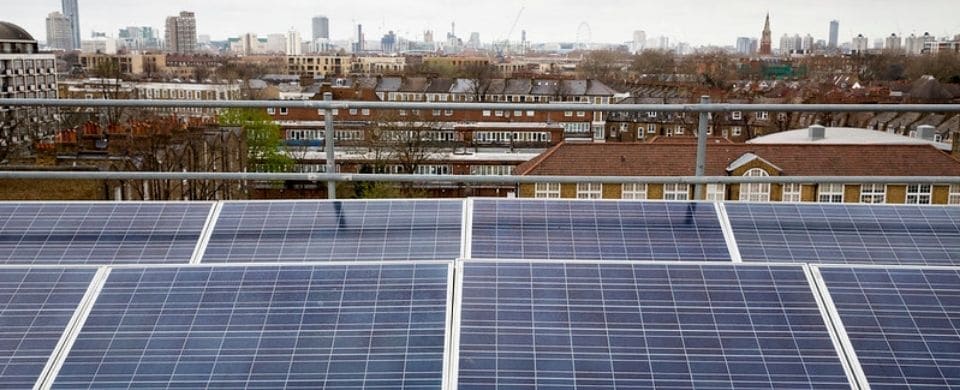UK Government Policy, Climate and The Future
Written by Andy Lester, Head of Conservation for our November 2021 eNews.
As world leaders gather in Glasgow for the critical COP26 climate talks, how sufficient are the UK’s own greenhouse gas reduction targets?
Over the past few months we have heard some impressive and headline- grabbing stories coming out from Downing Street on Climate Change policy. Top of the list is a commitment in the 2021 6th Carbon Budget to reduce carbon emissions by a massive 78% on 1990 levels by 2035 and a rapid phasing out of new diesel and petrol vehicles by 2030. This was reinforced in the new Net Zero Strategy, with a promise of 440,000 green jobs and over £90 billion of new green investment on a path to net zero by 2050.
Is the UK truly ready for a decarbonised future and will the UK keep its promises and pledges?
November 2021 sees the gathering of world leaders for the critically important 26th Conference of Parties in Glasgow (COP26). Here, the government hopes that other nations will follow the UK’s lead and promise drastic cuts to carbon in time to avert a catastrophic rise in global temperature. We must all hope that happens. Unfortunately, however, there are still gaping holes in the UK’s ambitious plans.
UK targets are impressive on paper, but will not result in targets being met on the ground unless the policies and funding are in place to deliver them. Chris Stark, CEO of the Government’s official advisory body the Committee on Climate Change, recently said “there is a general feeling that the UK Government is quite keen to present itself as… ambitious, and keen to sign up to long term targets as a platform internationally; but less keen to deliver against things with difficult policy decisions”. Although the UK Government’s words are greener than ever, the planned action to deliver the policies needed to divert climate catastrophe remains inadequate.
So, where are the problem areas? The UK government is being challenged on a number of areas including:
–Food consumption. We need to change what we eat (especially consuming less dairy and meat). The UK government has so far been reluctant to enact new legislation to tax higher carbon-demanding products such as red meats. Without a rapid shift from an unsustainable diet, it will be impossible to meet the ambitious carbon targets.
–Petrol and diesel: Selling only new electric cars is good for those with disposable income to purchase. For everyone else, however, it does not mean the immediate end of fossil fuel hungry vehicles. Furthermore there are significant doubts that the UK electricity infrastructure will be able to cope with the huge number of new charging stations required across the UK by 2030.
–Coal, gas and infrastructure: There remains deep concern about new investment in offshore oil and gas as well as new coal in Cumbria. Combined with energy intensive schemes such as HS2 there will be a growing gap between emission targets and actual emissions. There is a risk that UK emissions from fossil fuels (especially natural gas) could even go up in the short term, making the UK government’s targets less viable.
–New home building: CCC, Greenpeace and the Wildlife Trusts have all expressed the lack of ambition on energy efficiency of volume house builders. Many new builds and many new commercial developments continue to only pay lip service to insulation, alternative energy and public transport schemes, as well as biodiversity protection. Without significant new interventions it is virtually impossible to bring the sector to anything resembling Zero carbon by 2035.
–Nature-based Solutions for climate: As part of the UK Government’s recent “Net Zero” strategy there is a new intention to restore 285,000 hectares of peat bogs by 2050 as a way of locking in soil carbon and helping to bring Nature-based Solutions to the heart of climate policy. Whilst scaled up action such as this is welcome, there are significant concerns about the length of time and adequate funding. This of course can be no substitute anyway for a rapid cut in fossil fuel use which, for all the rhetoric, government actions currently will not deliver at the scale or pace required.
–Creation of 440,000 new jobs: This is a welcome new development; but critics argue that there is little or no data behind the target. What constitutes a “green job” and what incentives will the government introduce to ensure a transition to a new greener work-force and by when?
We are rapidly approaching the unwanted 1.5C milestone, and beyond; the long term economic costs of inaction will stack up fast. It is clear that the UK Government has become increasingly ambitious in its rhetoric about moving fast to a greener and cleaner energy sector. But the mood music is still not being met by anything like the level of action that will be required to meet the 78% reduction target or indeed net zero by 2050.
Sign up to receive future eNews communications here.
Image: SOLAR POWER FOR WORKING COMMUNITIES ACROSS LONDON / Ashden






I am deeply concerned about the government that continues to talk about growth (GDP) when the growth needed is; in public transport as use of private transport reduces,even electric vehcles:in passive housing and insulation of existing housing stock; many more existing houses using air or ground source heating;in producing products that are quality,long lasting and repairable; and a rapid increase in the production of energy from wind and solar.
To make things worse the government seems to be leaving ‘the market’ to sort things out without any apparent plans or guidance to industry sufficient funding to enable industry to change tack and to do what is necessary. I guess the government is unable to move away from its capitalistic agenda and focus on a circualar economy where resources are not wasted but reused, repurposed or recycled and nothing manufactured unless it meets these requirements.